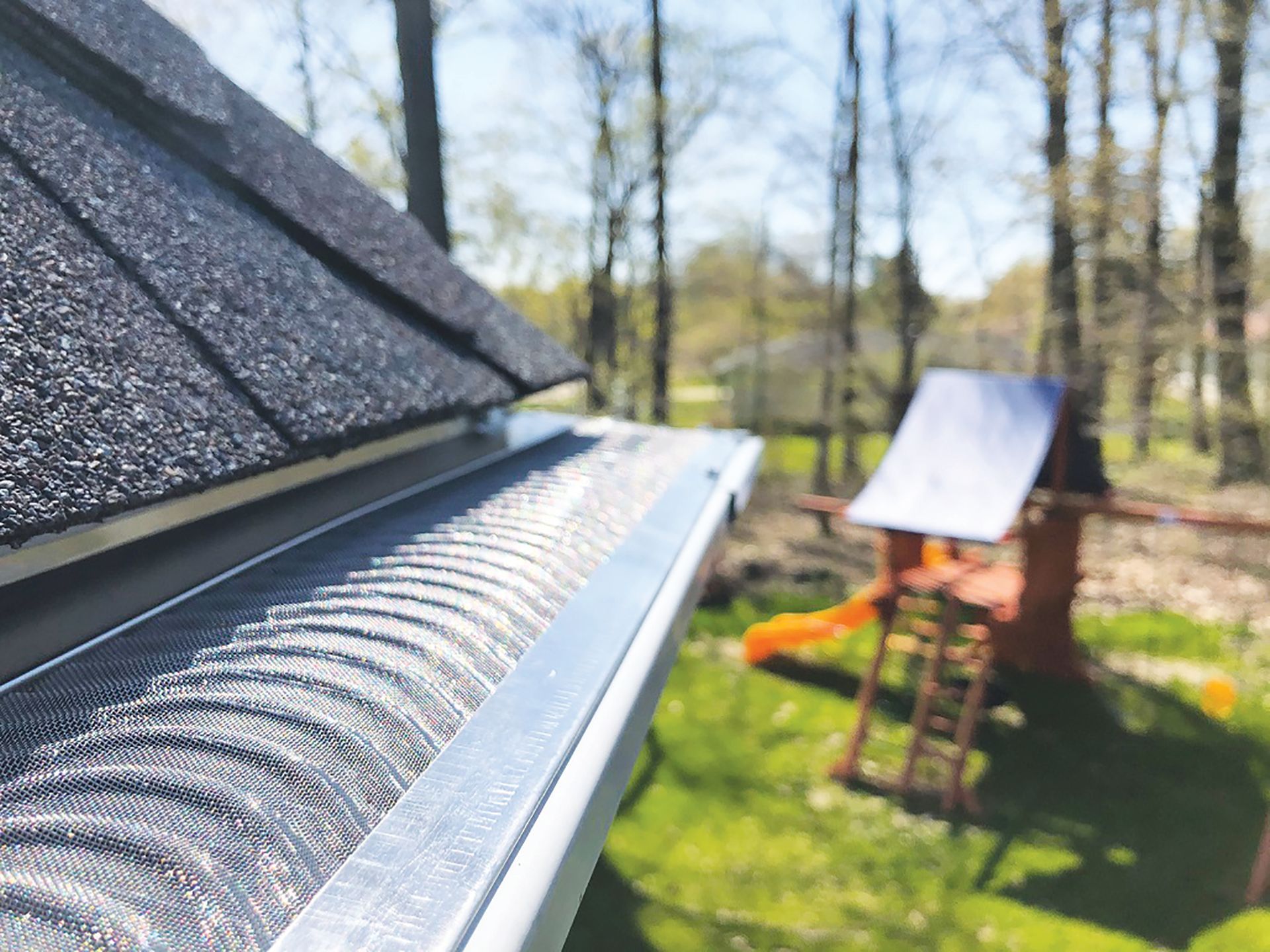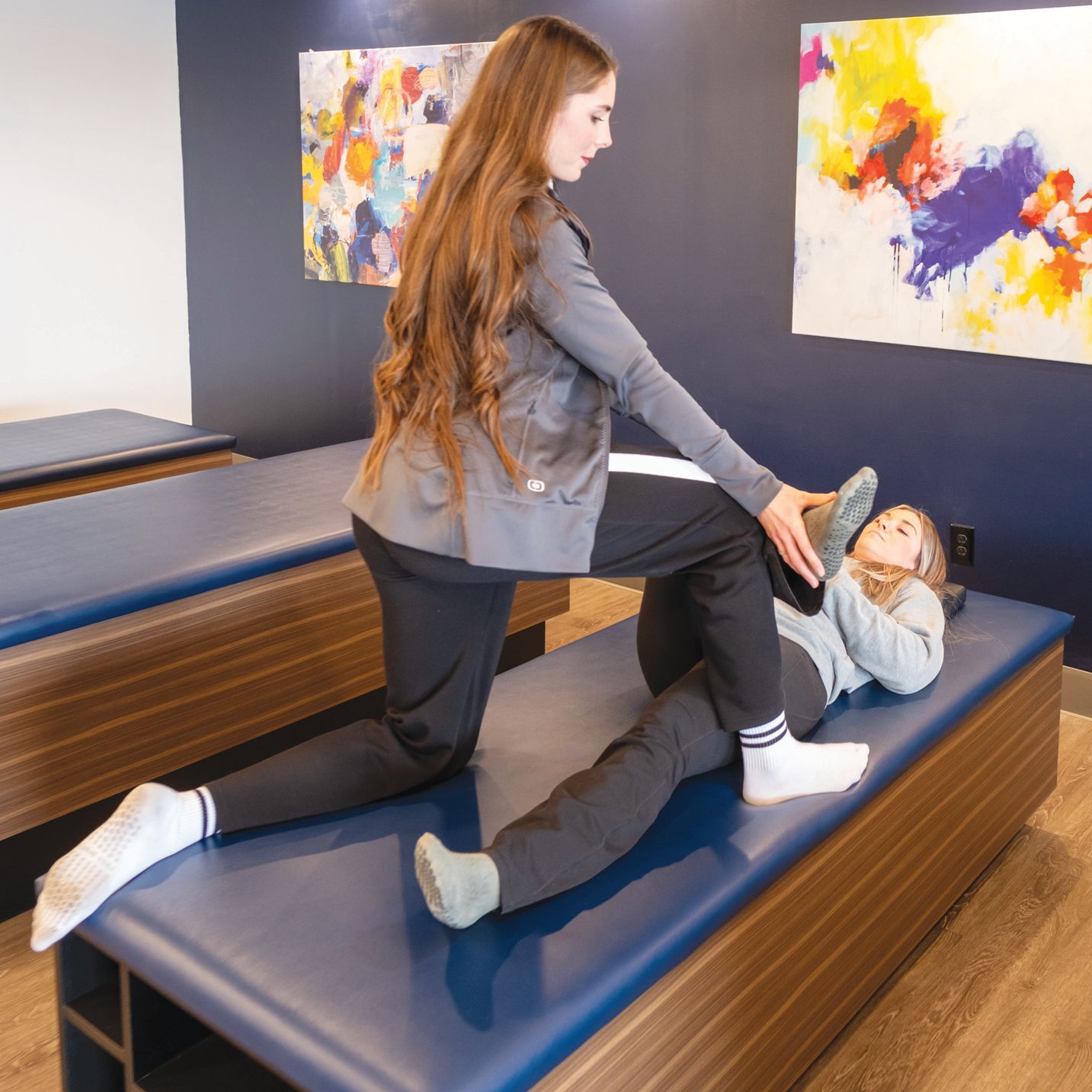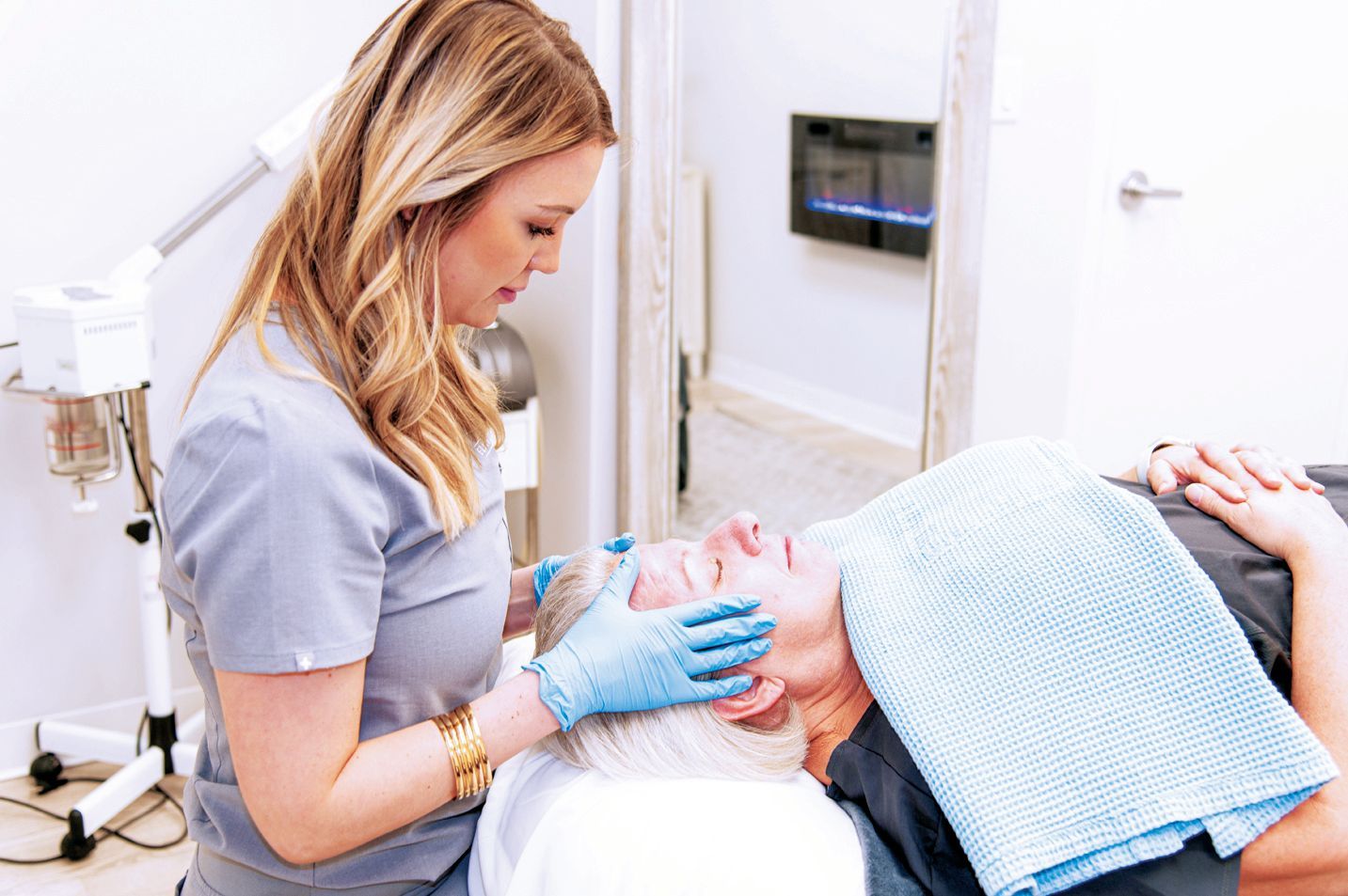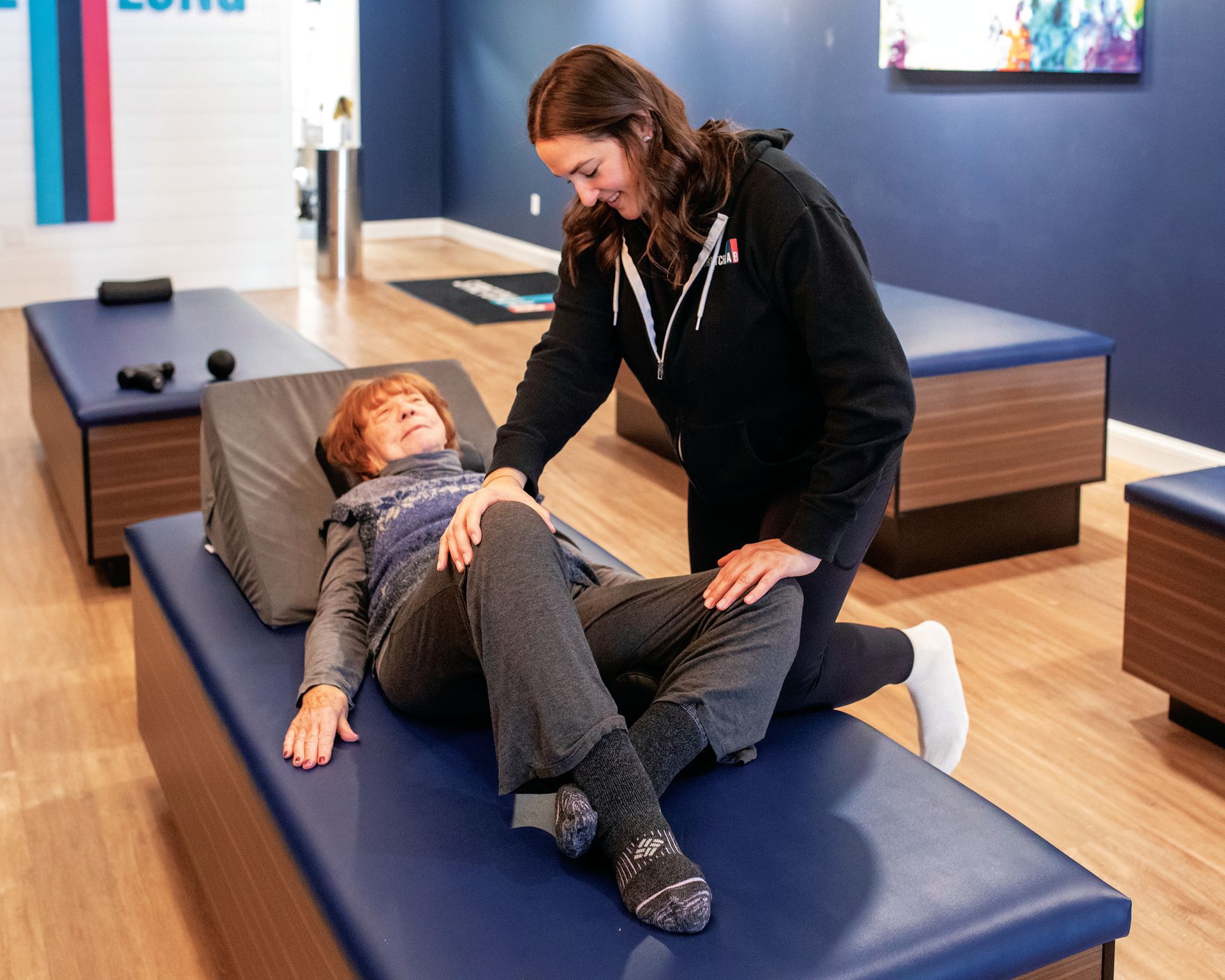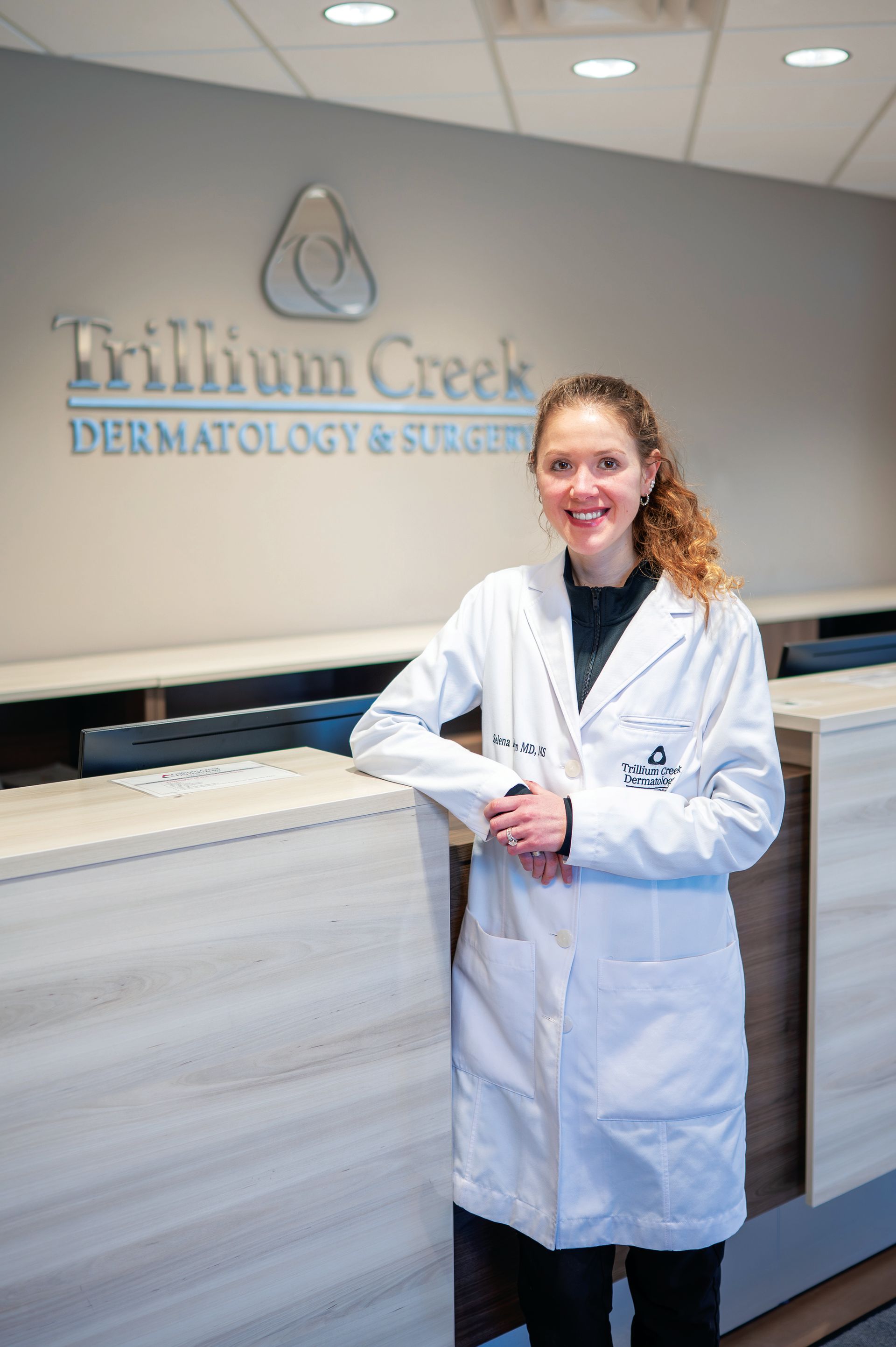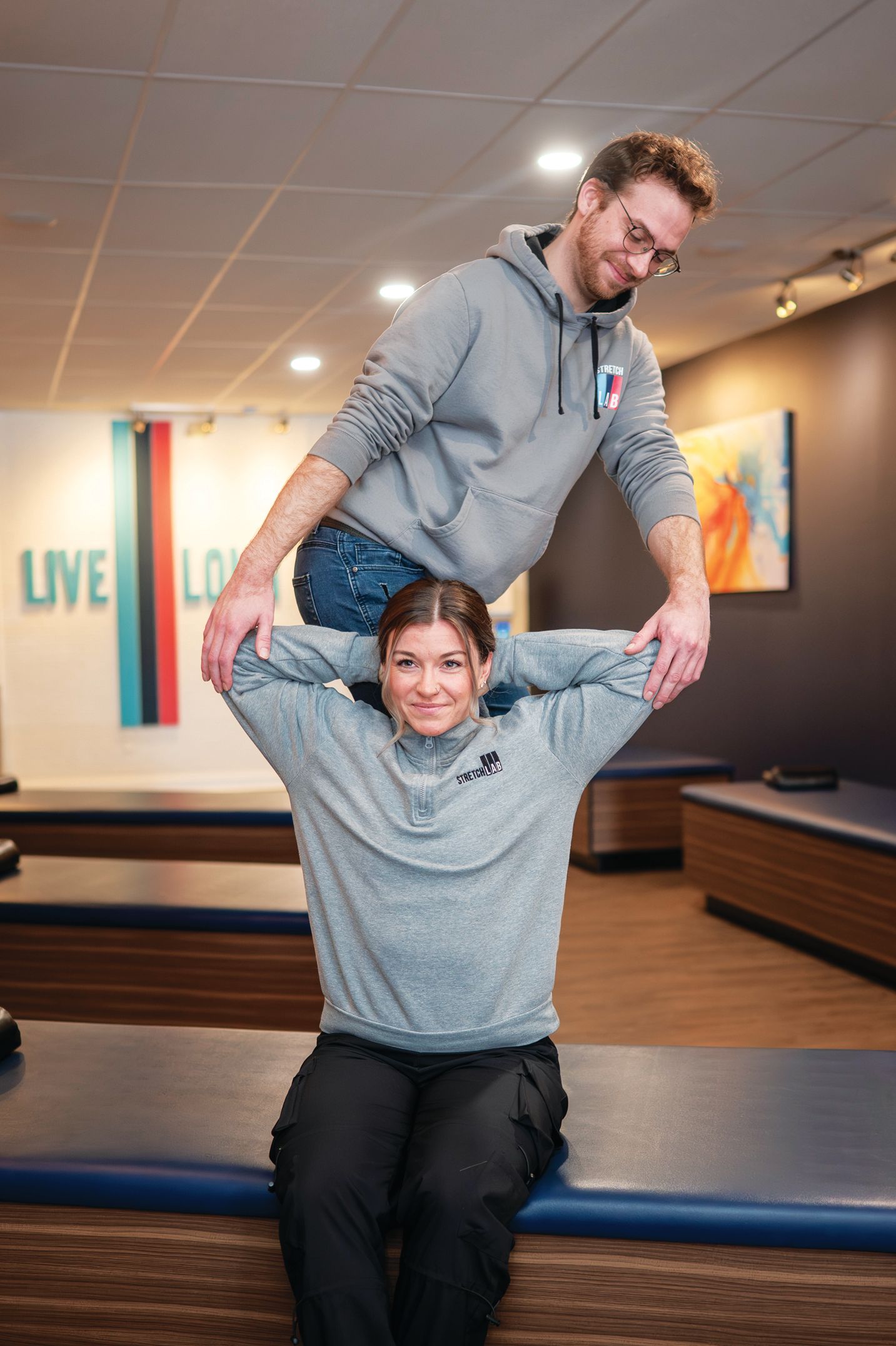The essential cancer screen
A colonoscopy can dramatically improve the chances that colon cancer will be detected early. Here’s why that matters.
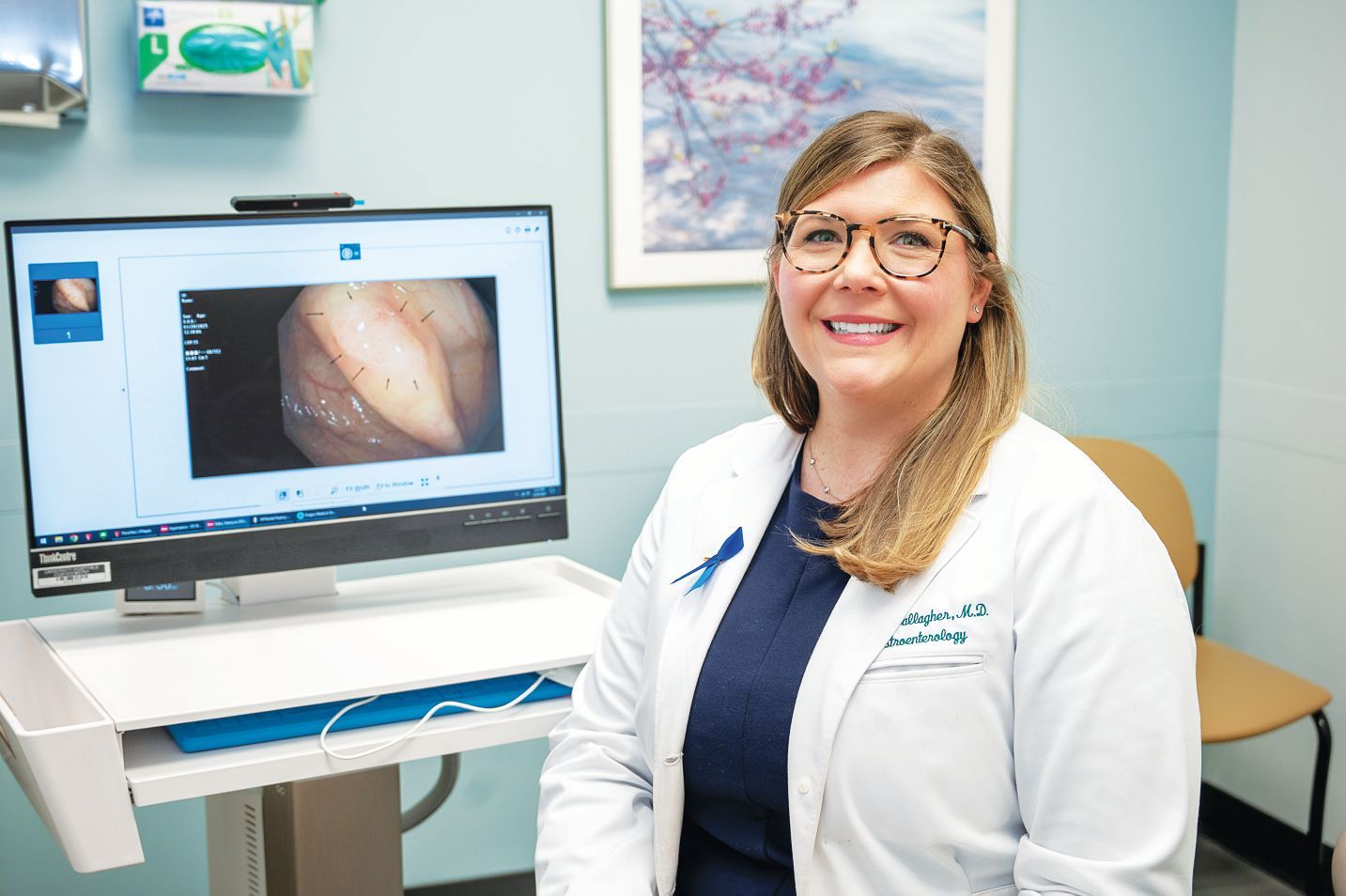
In its early stages, colorectal cancer (encompassing both the colon and rectum) doesn’t present with many noticeable symptoms. That’s why a colonoscopy is essential. (Photography: Adrienne Rose)
When it comes to cancer, early detection is key. That especially rings true for colon cancer. While it is the third-most common cancer and second-leading cause of cancer-related deaths, it is also one of the most preventable.
In its early stages, colorectal cancer (encompassing both the colon and rectum) doesn’t present with many noticeable symptoms. That is why a colonoscopy is essential. This routine procedure, which involves examining the inside of your colon and rectum with a long, flexible tube equipped with a camera, detects early signs of serious health issues like colorectal cancer, polyps and other gastrointestinal issues.
“A colonoscopy is more than just a screening. It is colon cancer prevention because polyps, which are small potentially pre-cancerous growths in the lining of the colon, are removed before they can turn into cancer,” says Bridget Gallagher, MD, who specializes in gastroenterology at University Hospitals Ahuja Medical Center. “When polyps are caught at an early stage, they are not cancerous yet, so that is why colon cancer is so preventable.”
“Early detection and improvements in treatment of colon cancer have resulted in a 57% drop in the overall colorectal cancer death rate from 1970,” she says.
While the incidence of colorectal cancer has been declining in recent years among older adults, the incidence among younger adults is increasing, so now the current guideline recommends that you get a colonoscopy at age 45.
“If you have a family history or other risk factors or symptoms, however, we recommend you be screened earlier,” Dr. Gallagher says. “Your physician will evaluate your risk on a case-by-case basis.”
“We know that family history and age are the strongest risk factors, but lifestyle choices also can lead to increased risk of colon polyps and cancer, such as smoking, alcohol, obesity, and diets heavy in red meat and processed foods,” she says. “Even though about 50% of colon cancers can be attributed to these risk factors, many other patients who have a healthy lifestyle still can develop colon polyps and colorectal cancer.”
While colonoscopy is the gold standard as it allows for detection and removal of polyps at the same time, there are other options for patients hesitant to get a colonoscopy. The Cologuard tests stool for DNA markers and traces of blood associated with polyps and colon cancer, and the Fecal Immunochemical Test examines stool for blood. Both are at-home tests, in which patients send in a stool sample using a kit provided by their doctor to be analyzed.
One of the drawbacks, according to Dr. Gallagher, is that Cologuard tests can be falsely positive 13% of the time, meaning the test incorrectly identifies a possible polyp or cancer, so it can cause unnecessary stress.
“If these at-home tests are more convenient for patients, then they are an option. My goal is to have as many people as possible screened for colon cancer,” Dr. Gallagher says.
University Hospitals Ahuja Medical Center is located at 3999 Richmond Road in Beachwood. For more information call
216-844-3636 or visit
UHHospitals.org/colonoscopy.
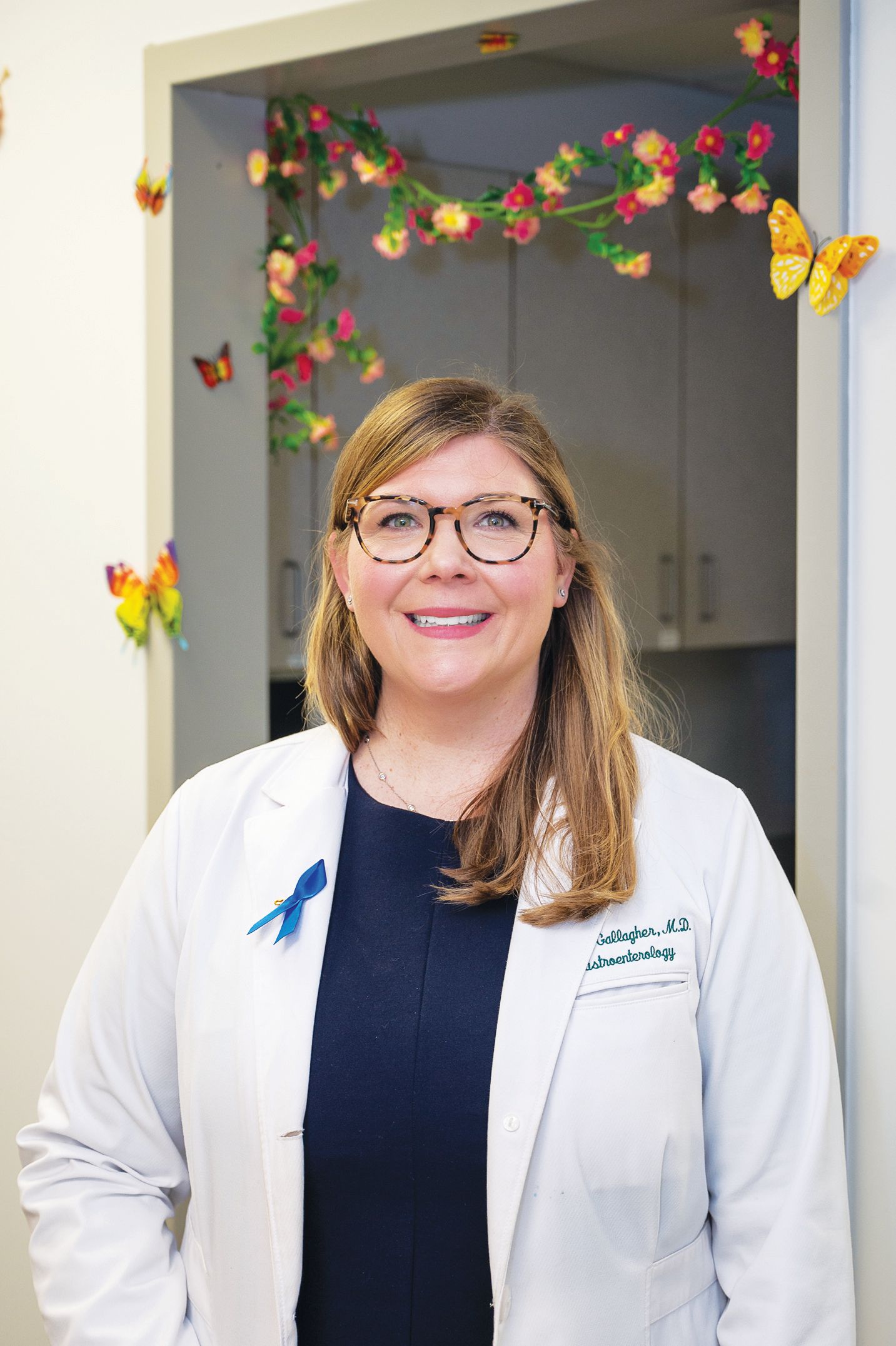
Bridget Gallagher, MD, who specializes in gastroenterology at University Hospitals Ahuja Medical Center, says that when polyps are caught at an early stage during a colonoscopy, they are not cancerous yet, so that is why colon cancer is so preventable.
When to Schedule a Colonoscopy
Most pre-cancerous colon polyps do not cause symptoms until they are more advanced, so a colonoscopy is the best prevention. Generally, a colonoscopy is recommended starting at age 45 for average-risk individuals followed by regular screenings every 10 years if there were no polyps found during their colonoscopy. However, if you have any of these risk factors or symptoms, consult with a gastroenterologist.
Risk Factors:
- Family history—having a close relative with colorectal cancer
- Lifestyle—smoking, lack of exercise, obesity, excessive alcohol consumption
- Food—a diet high in red or processed meats.
Symptoms:
- Blood—in your stool or rectal bleeding
- Changes in bowel habits—diarrhea or constipation, narrower stools
- Abdominal pain—cramping, bloating
To make an appointment with a gastroenterologist at UH Ahuja Medical Center, call
216-844-3636.
Recent Posts
RELATED ARTICLES

